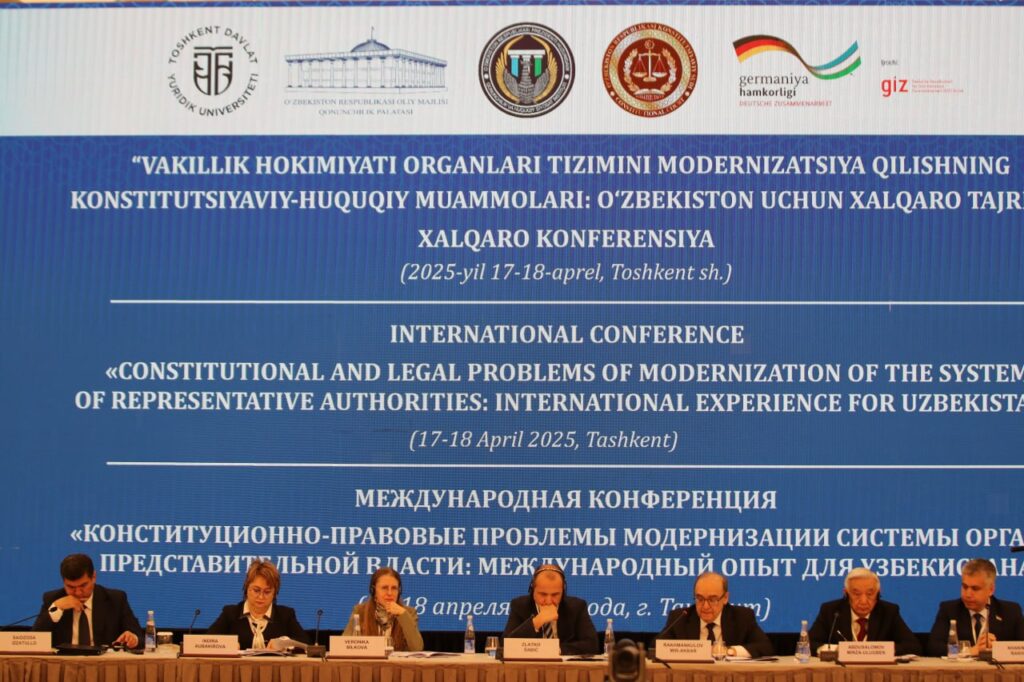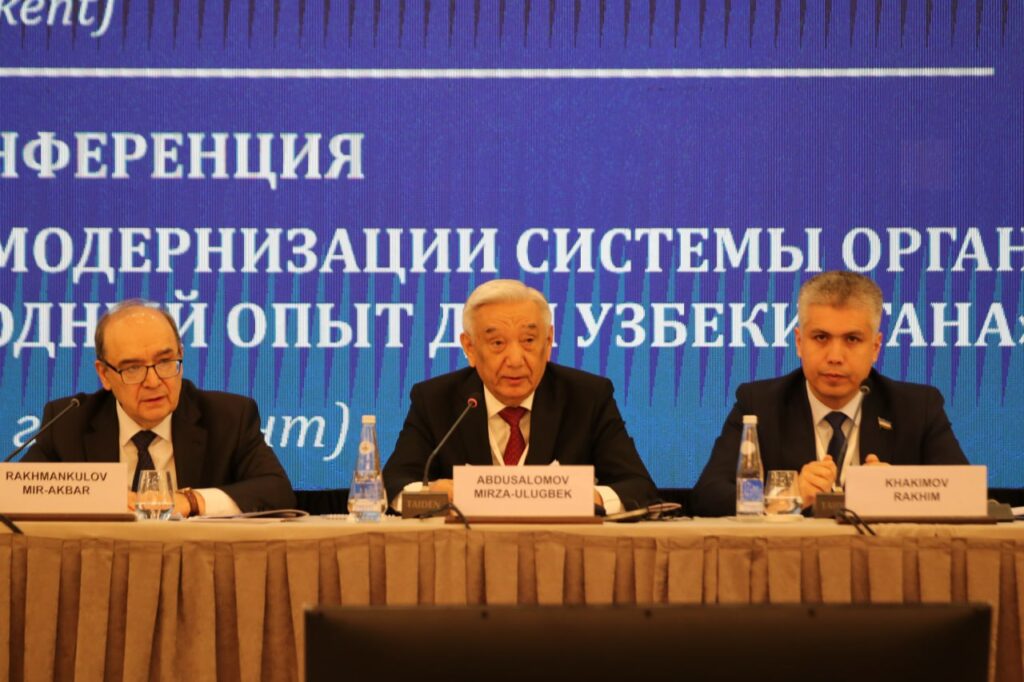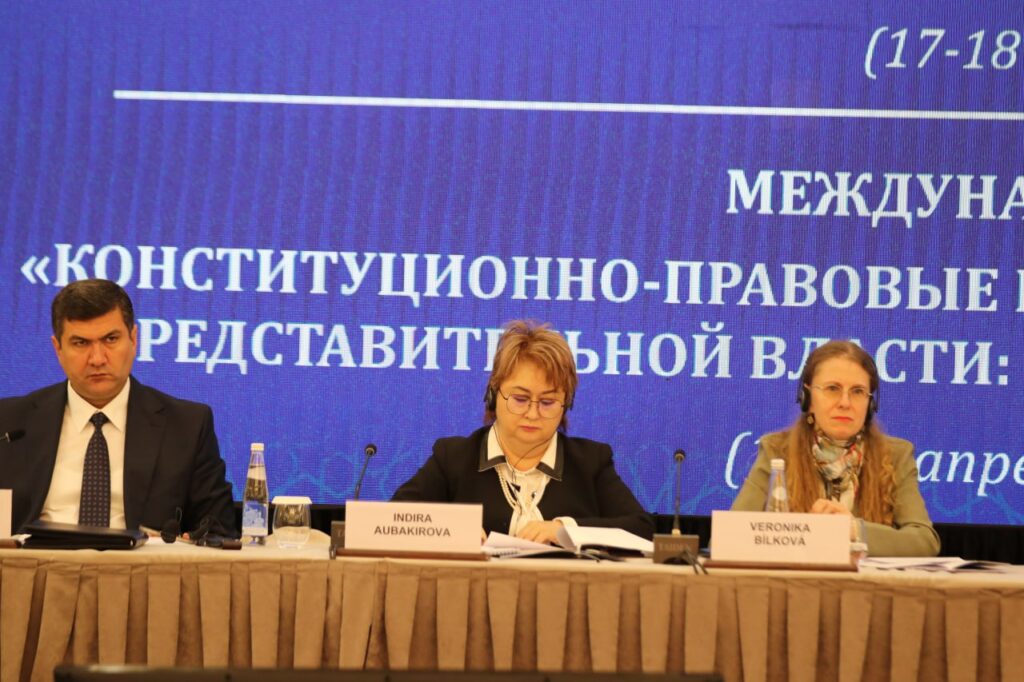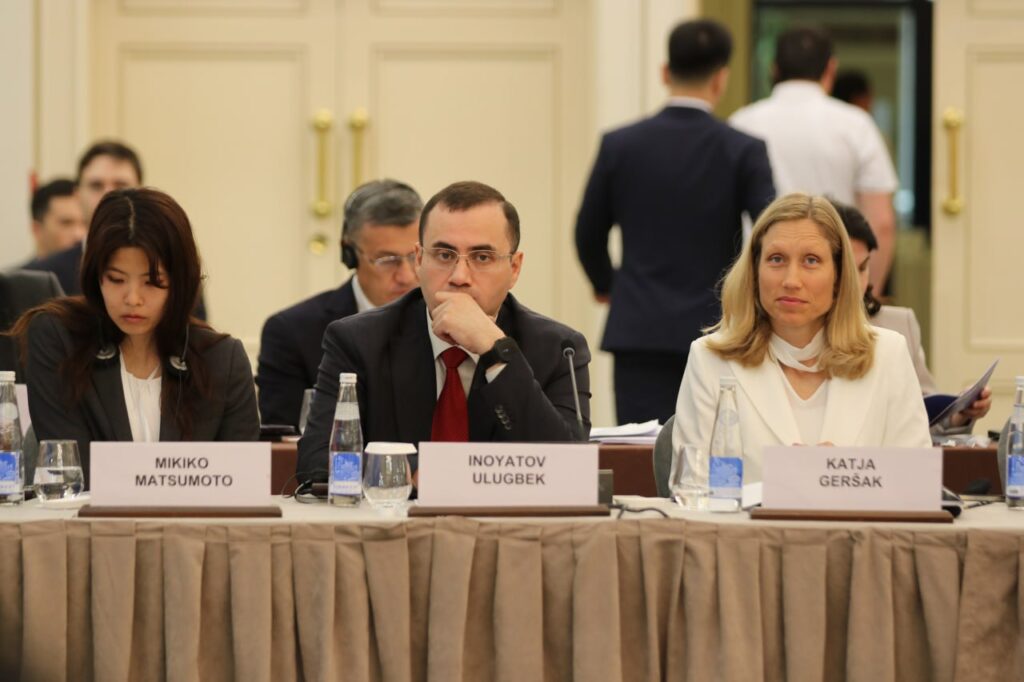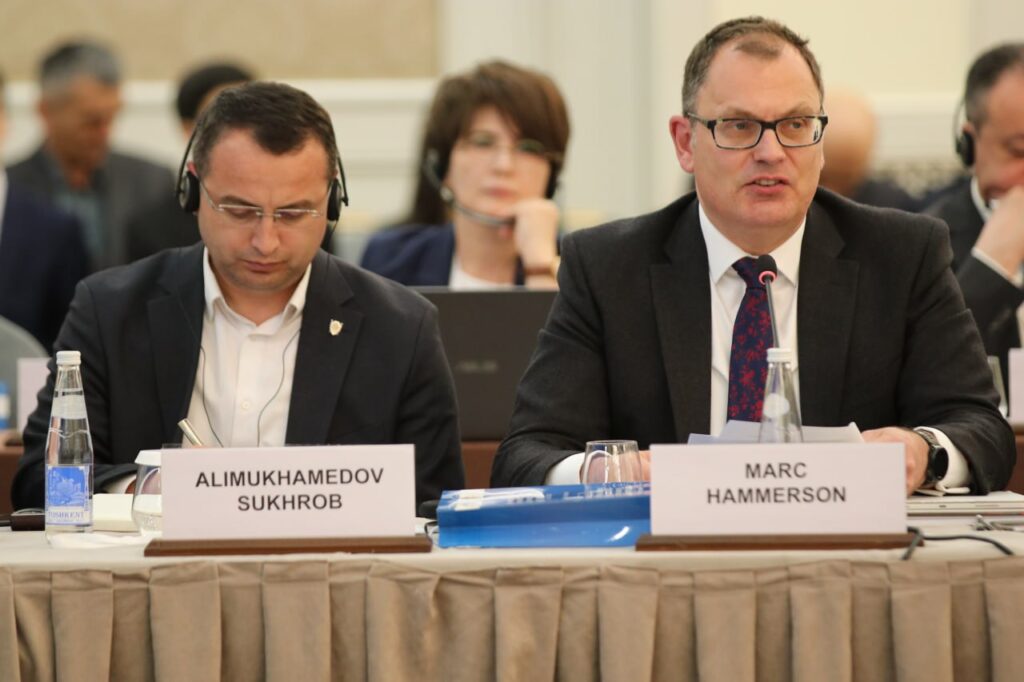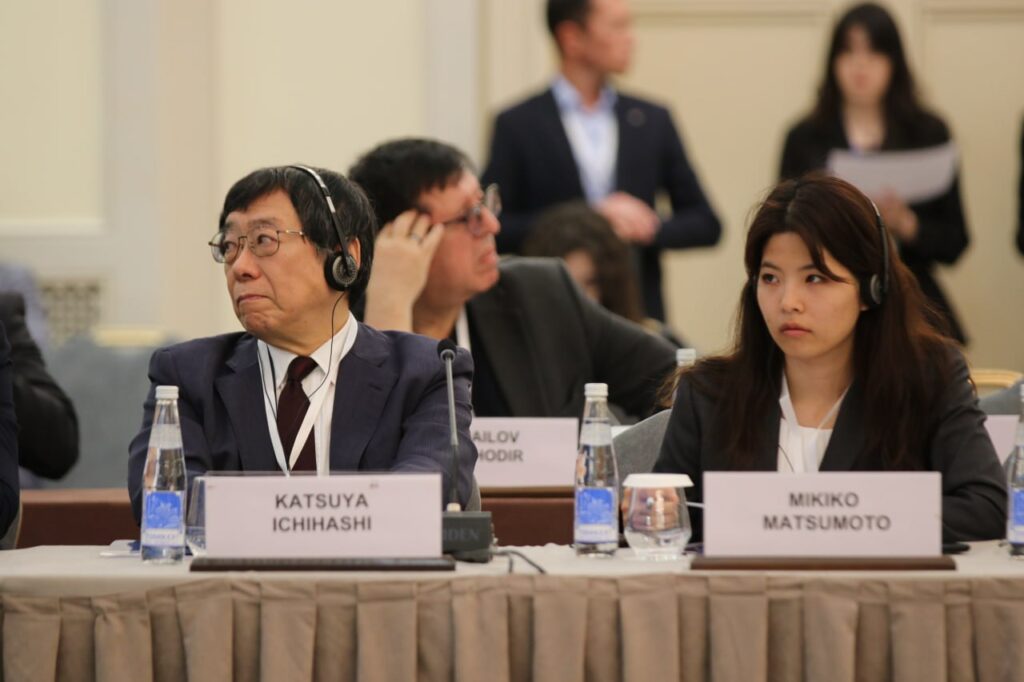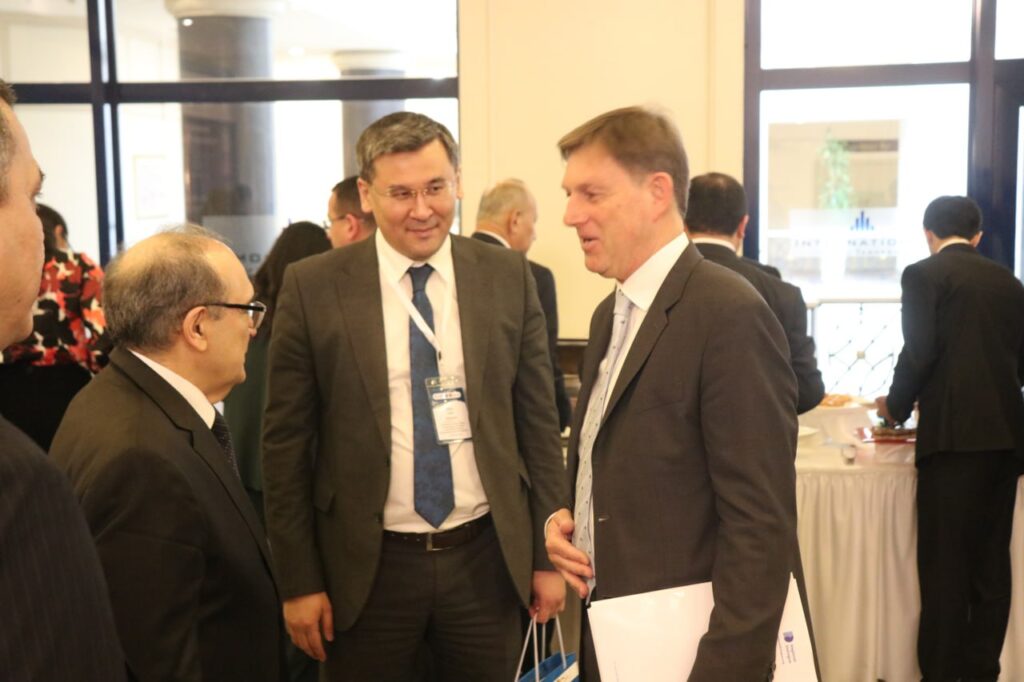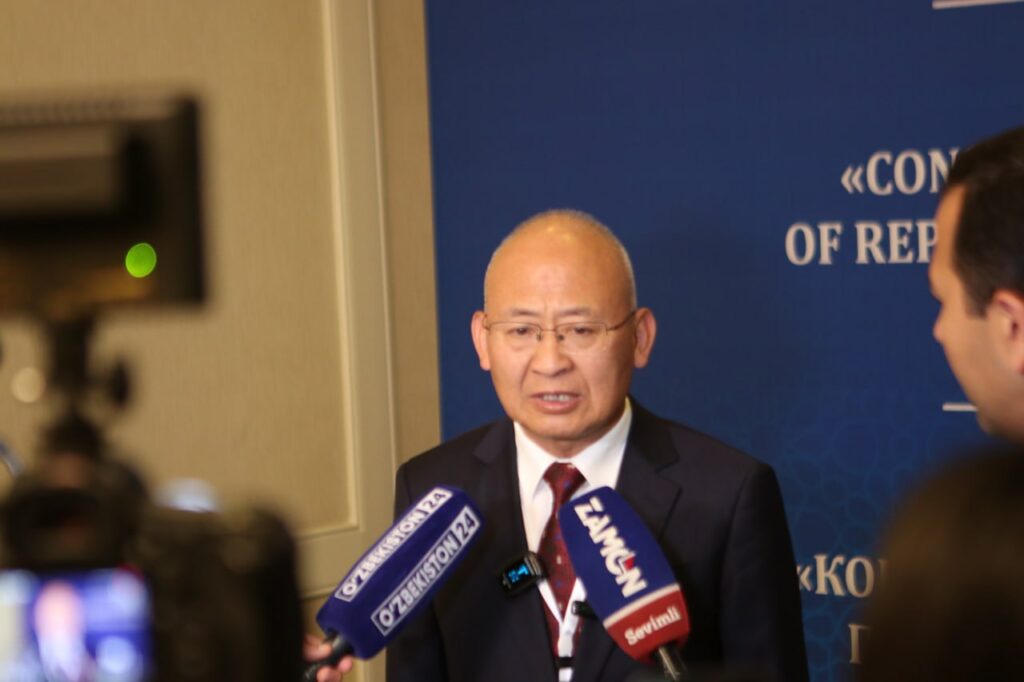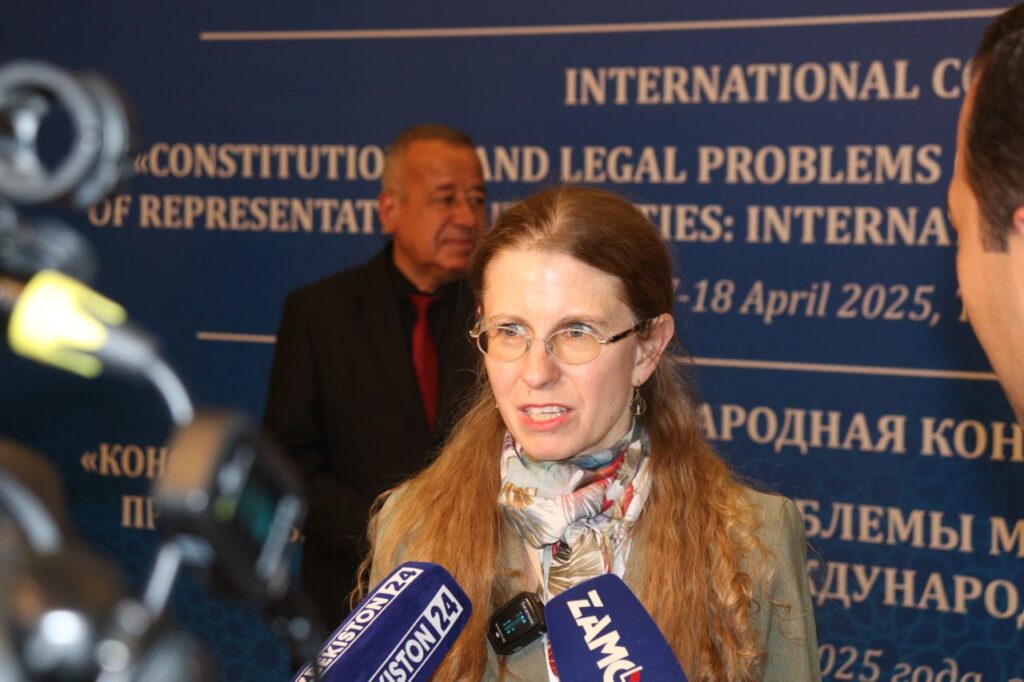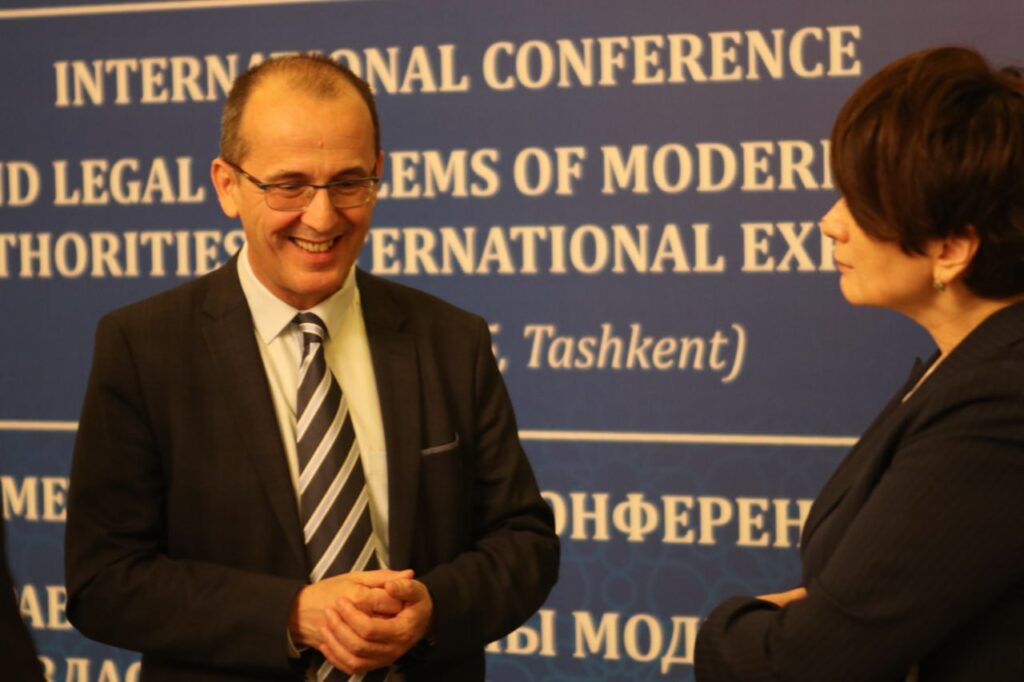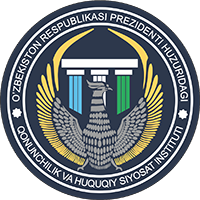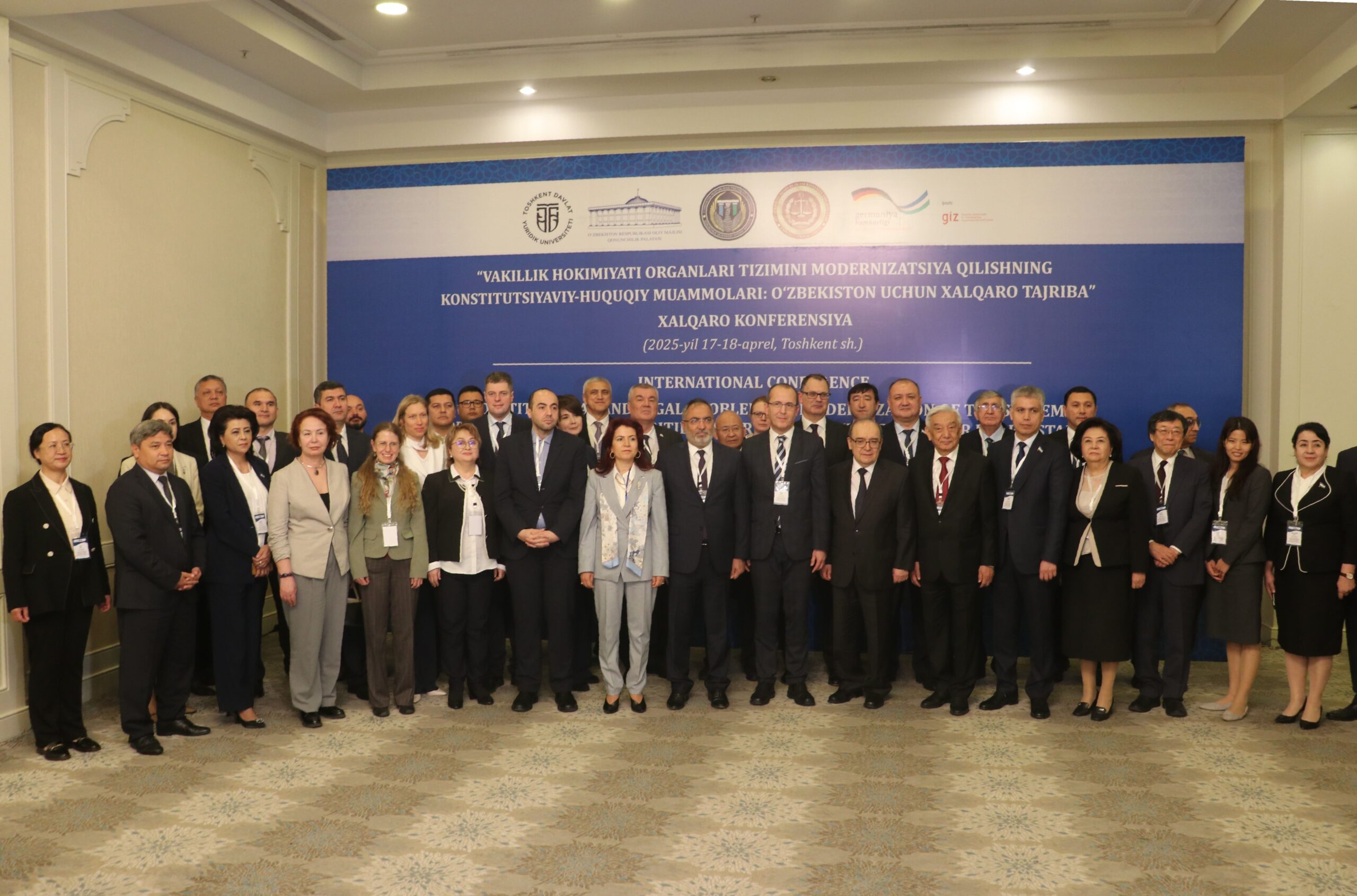On April 17-18, 2025, Tashkent hosted an international scientific and practical conference on the topic: “Constitutional and legal problems of modernization of the system of representative bodies: international experience for Uzbekistan”, organized by the Institute of Legislation and Legal Policy under the President of the Republic of Uzbekistan jointly with the Constitutional Court and the Legislative Chamber of the Oliy Majlis of the Republic of Uzbekistan.
The goal was to discuss current issues of improving the activities of the Parliament and local Kengashes of People’s Deputies in the context of the updated Constitution, as well as an exchange of views between domestic and foreign experts.
The event was attended by deputies and senators of the Oliy Majlis, chairmen of local Kengashes of People’s Deputies, heads of ministries and departments, analytical centers, research institutes and higher educational institutions, as well as government officials, experts and scientists from 10 countries, such as Great Britain, Slovenia, Poland, Turkey, Japan, China, Russia, Kazakhstan, Tajikistan and Moldova. In addition, such authoritative international organizations as the Venice Commission, Regional Dialogue and GIZ delegated their representatives to participate in the conference.
The conference was held in the context of deep reforms implemented after the adoption of the new version of the Constitution in 2023. One of the key areas was the revision of approaches to the formation and functioning of representative bodies of power. During the conference, issues of legislative activity, parliamentary control, interaction between executive and representative authorities, as well as the role of political parties and civil society institutions were widely discussed.
The event was especially important because it took place shortly after the 150th Assembly of the Inter Parliamentary Union, which was held in Tashkent. Holding such a significant international forum in Uzbekistan became recognition by the world community of the large-scale democratic transformations that are being implemented in the country. This also testifies to the increased authority of Uzbekistan as a platform for global dialogue and strengthening international cooperation.
In this context, the conference participants emphasized that Uzbekistan is now recognized in the international community as a country of democratic reforms aimed at building an effective, inclusive and transparent system of government. Such a high assessment became possible thanks to the phased implementation of the Strategy “Uzbekistan-2030”, which laid the political, legal and socio-economic foundations for further state and social construction. Within the framework of this Strategy, the President of the country put forward large-scale tasks to further strengthen democratic institutions, improve the mechanisms of democracy and enhance the role of civil society.
The conference participants noted the special role of the updated Constitution adopted at the 2023 Referendum, which defined a new stage in the development of the national statehood of Uzbekistan, became the basis for building a democratic, legal and social state, the main goal of which was to ensure the rights, freedoms and legitimate interests of a person, the well-being and security of the country.
The conference noted that the 2024 elections of deputies of the Legislative Chamber of the Oliy Majlis of the Republic of Uzbekistan, held for the first time on the basis of a mixed electoral system, were an important step in the implementation of constitutional reforms. New approaches to the formation of representative bodies testify to Uzbekistan’s determination to introduce advanced democratic instruments, ensure transparency and accountability of power, and ensure the free development of political parties and civil institutions.
At the same time, effective modernization of representative bodies of power involves a comprehensive study of international experience, analysis of best foreign practices and development of recommendations for their use, taking into account the national characteristics and interests of the country.
The work of the international conference was held within the framework of six sessions, each of which was devoted to the consideration of key areas of modernization of the system of representative bodies: the new constitutional appearance of representative bodies in the context of strengthening the foundations of democracy; the main priorities of modernization and increasing the effectiveness of the legislative activity of Parliament. The discussion also focused on the implementation of generally accepted principles and norms of international law in the organization and conduct of parliamentary control; strengthening the role of political parties in modernizing the system of representative power. Particular attention at the conference was paid to improving the activities of representative bodies of state power at the local level; political and legal issues of further deepening inter-parliamentary cooperation.
